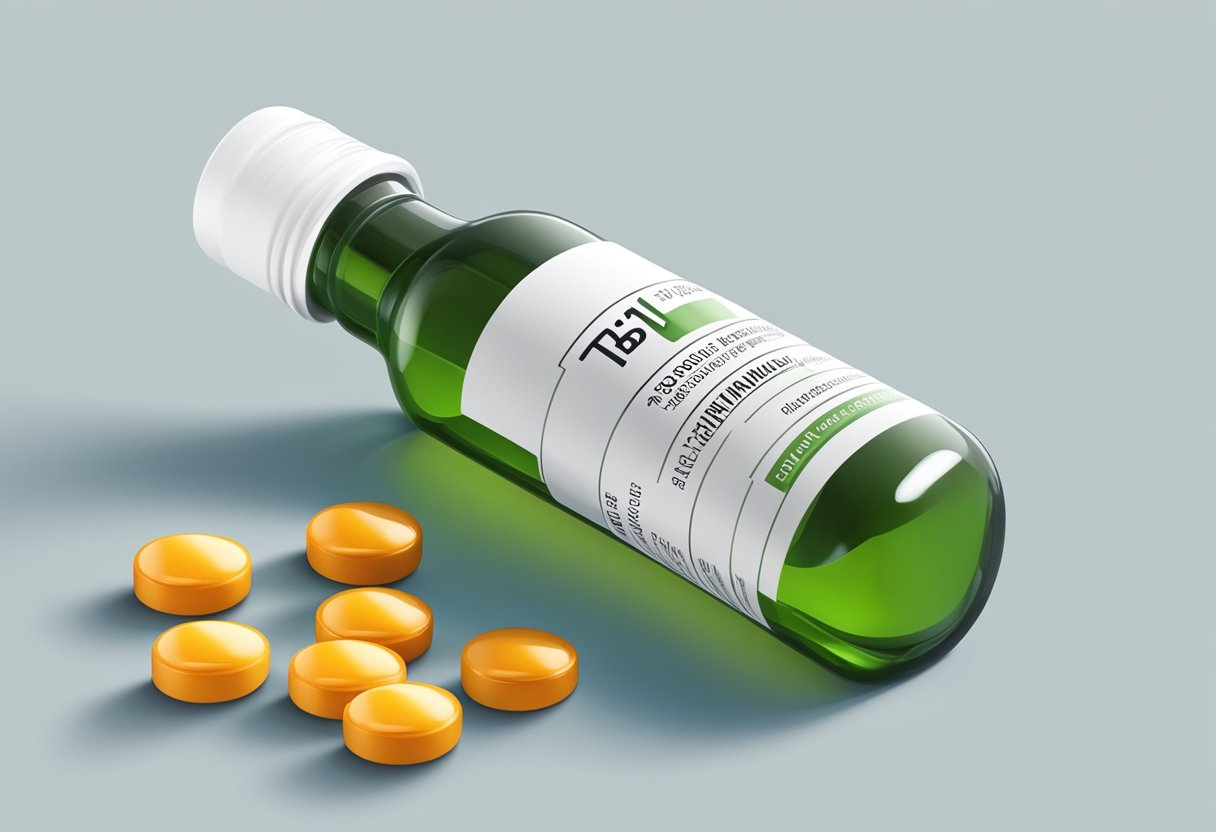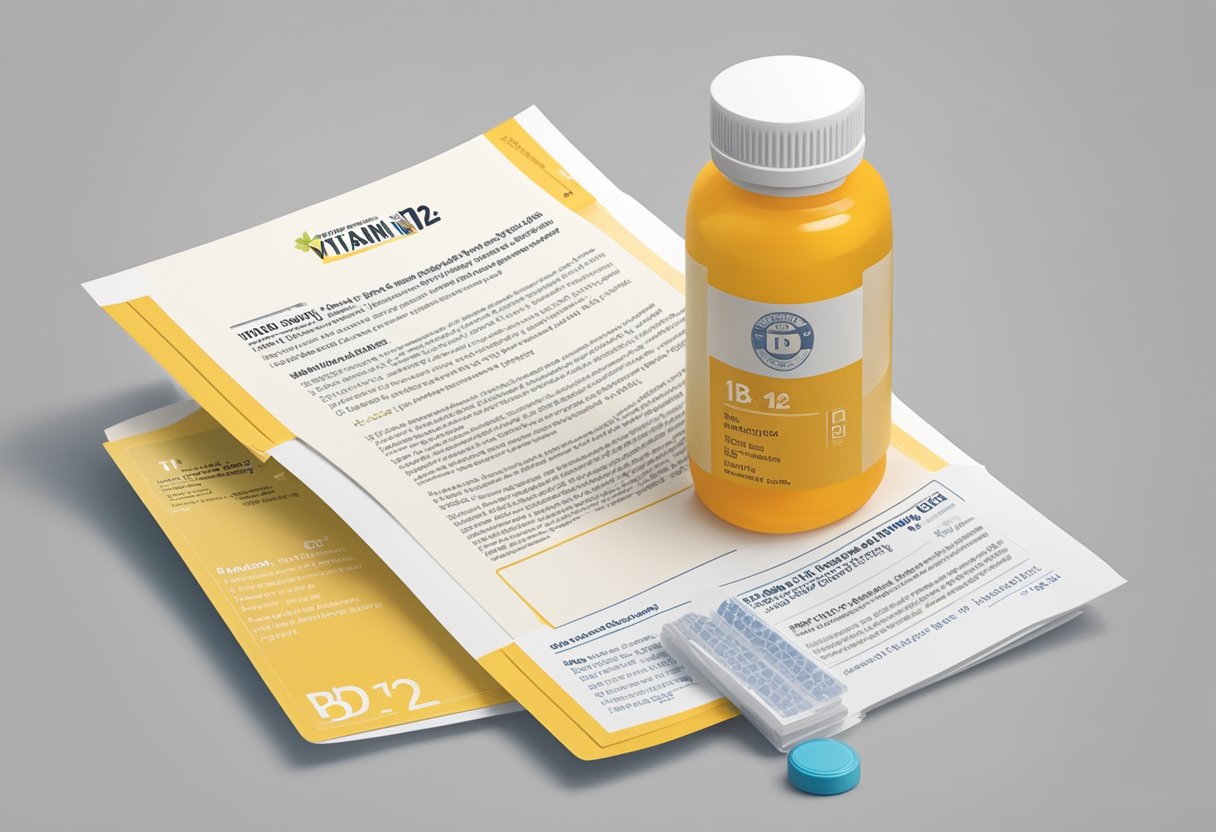Triple negative breast cancer (TNBC) is a subset of breast cancer characterized by the absence of estrogen receptors, progesterone receptors, and HER2 protein. It is a highly aggressive form of cancer that often has limited treatment options and a poorer prognosis compared to other breast cancer subtypes.
What is the Relationship Between Vitamin B12 and TNBC?
The role of nutrition, particularly vitamin B12, in the context of TNBC, has garnered attention in recent research, investigating how this micronutrient might influence the progression and treatment outcomes of the disease.

Vitamin B12, also known as cobalamin, is an essential nutrient that plays a critical role in DNA synthesis, energy production, and nerve function. A deficiency in vitamin B12 can lead to anemia and neurological complications, highlighting the importance of adequate intake through diet or supplementation.
Moreover, emerging research suggests potential associations between vitamin B12 levels and the development and progression of TNBC, although findings are not yet conclusive. As such, understanding the interplay between vitamin B12 and TNBC may offer insights into new interventions and potential therapeutic targets for this challenging form of cancer.
Key Takeaways
- TNBC is a particularly aggressive form of breast cancer with limited treatment options.
- Vitamin B12 is crucial for DNA synthesis and overall cell function, impacting cancer development.
- Current research explores the potential connection between vitamin B12 and TNBC outcomes.
Understanding Vitamin B12
Vitamin B12, also known as cobalamin or cyanocobalamin, is a crucial nutrient that supports vital biological functions. This section comments on its role, varying sources, metabolic pathway, deficiency risks, and diagnostic measures.

Biological Role of Vitamin B12
Vitamin B12 plays a pivotal role in DNA synthesis and the formation of red blood cells. It is essential for maintaining the health of nerve cells and aids in the production of energy from food.
Sources and Forms of Vitamin B12
The primary sources of Vitamin B12 are animal products: meat, eggs, and dairy products. It exists in several forms, but methylcobalamin and 5-deoxyadenosylcobalamin are the active forms the human body can utilize directly.
Absorption and Metabolism of Vitamin B12
Vitamin B12 absorption begins in the stomach where it binds with intrinsic factor. This complex travels to the small intestine, where it’s absorbed into the blood. The liver then stores Vitamin B12 and converts it to its active forms.
Vitamin B12 Deficiency
B12 deficiency can lead to anemia and neurological issues due to the interruption of DNA synthesis and red blood cell formation. Symptoms include fatigue and cognitive disturbances.
Demographics at Risk for B12 Deficiency
Individuals at higher risk for B12 deficiency include elderly people, those who follow a strict vegetarian or vegan diet, and people with malabsorption issues like those lacking intrinsic factor.
Health Implications of B12 Deficiency
Long-term B12 deficiency can manifest in neurological impairments, an increased level of homocysteine in the blood, potentially leading to cardiovascular disease, and various types of anemia such as megaloblastic and pernicious anemia.
Diagnosing Vitamin B12 Deficiency
A diagnosis of Vitamin B12 deficiency typically involves blood tests that measure serum vitamin levels. Symptoms along with elevated homocysteine and methylmalonic acid levels can collectively point to a deficiency.
Vitamin B12 in the Diet

Vitamin B12, or cobalamin, is crucial for nerve tissue health, brain function, and the production of red blood cells. It’s predominantly found in animal products, making it a nutrient of interest for those on specific diets.
Dietary Sources of Vitamin B12
Animal-based foods are the most significant sources of Vitamin B12. These include:
- Meat: beef, liver, and chicken
- Fish: salmon, trout, and tuna
- Dairy: milk, cheese, and yogurt
- Eggs: particularly the yolk
For those who exclude or limit animal products from their diet, some fortified foods provide Vitamin B12:
- Fortified breakfast cereals
- Nutritional yeast
These are especially important for vegetarians and those following a vegan diet.
Recommended Intake Levels
The Recommended Dietary Allowance (RDA) for Vitamin B12 varies by age, pregnancy, and breastfeeding status. Adults typically require 2.4 micrograms daily. The Upper Limit (UL), which is the maximum daily intake unlikely to cause harmful effects, has not been established because Vitamin B12 has a low potential for toxicity.
Vitamin B12 for Special Diets
Those following a vegetarian or vegan diet may be at increased risk for Vitamin B12 deficiency due to limited consumption of animal products. It is vital for such individuals to include Vitamin B12 through:
- Supplements: which can provide the necessary cobalamin in a non-animal form.
- Fortified foods: often a main source of Vitamin B12 for vegetarians and vegans.
Regular monitoring and consulting with a healthcare provider can help maintain adequate levels of Vitamin B12 for those on special diets.
Vitamin B12 Supplementation and Treatment

In the context of Triple Negative Breast Cancer (TNBC), the role of Vitamin B12 in patient care is multifaceted, involving supplementation, treatment strategies for B12-related anemia, and addressing absorption difficulties.
Vitamin B12 Supplements
Patients with TNBC may experience Vitamin B12 deficiencies due to dietary insufficiencies or as a side effect of chemotherapy. Vitamin B12 supplements can help to replenish cobalamin levels and potentially support immune function. It is important to regulate these supplements, as excessive intake has not been shown to provide added benefits and may, in fact, complicate treatment. Observational studies suggested that vitamin B12 deficiency is noted in breast cancer patients, underlining the importance of monitoring serum vitamin levels.
Clinical Use of Vitamin B12
The clinical use of Vitamin B12 in oncology settings is complex. It does not directly treat TNBC; however, maintaining adequate cobalamin levels is crucial for DNA synthesis and cellular function. Oncologists may monitor B12 levels during cancer treatment to ensure that the metabolic demands of the patient are being met without inadvertently fueling tumor growth.
Treatment of Vitamin B12-Related Anemia
Treatment for anemia resulting from a Vitamin B12 deficiency typically includes vitamin B12 injections. These injections bypass issues with oral absorption and directly insert cobalamin into the bloodstream. Certain conditions, like megaloblastic anemia and pernicious anemia, require ongoing B12 injections since the ability to absorb B12 from the diet is compromised.
Addressing Absorption Issues
In TNBC patients, absorption issues can stem from the effects of chemotherapy on the stomach and small intestine or due to underlying conditions such as Crohn’s disease or celiac disease. Treatment involves addressing the root cause of malabsorption, whether it be the absence of intrinsic factor—a protein necessary for B12 absorption—or damage to the intestinal lining. Vitamin B12 supplements or injections may be prescribed to bypass the malabsorption problem and provide the necessary nutrient directly.
TNBC and Nutritional Concerns

Triple Negative Breast Cancer (TNBC) patients face distinct nutritional challenges that can impact treatment and recovery. An adequate intake of essential nutrients is critical to support the body’s energy needs and manage side effects from treatment.
Nutrient Needs in TNBC
Patients with TNBC require a balanced intake of nutrients to support their body’s energy and metabolism. Fatigue is a common symptom, making energy-rich foods high in protein and complex carbohydrates extremely important. Nutritional strategies may involve frequent, smaller meals to maintain energy and mitigate treatment-related side effects like nausea and diarrhea.
Impact of Vitamin B12 on TNBC Progression
Vitamin B12 plays a vital role in maintaining healthy red blood cells and supporting DNA synthesis. Research suggests that vitamin B12 deficiency might affect TNBC patients by exacerbating fatigue and causing weakness and numbness. Ensuring adequate B12 levels might prove beneficial in managing the progression and symptoms of TNBC, evidenced by studies examining vitamin levels and biomarkers in breast cancer patients.
Managing Side Effects and Complications
TNBC treatments can lead to a host of side effects that nutritional care can help manage.
For example, protein is essential in repairing cells and tissues harmed by cancer therapies. A diet rich in protein sources can help mitigate fatigue.
On the other hand, adequate hydration and nutrients tailored to individual needs can alleviate nausea and diarrhea. Medical professionals often work closely with patients to tailor diets that address these nutritional concerns and support overall health during TNBC treatment.
Potential Interactions and Risks Related to Vitamin B12

When we think about triple negative breast cancer (TNBC) and vitamin B12, it’s very important to understand the possible risks tied to treatments and diet. This includes how drugs might affect nutrient absorption, the implications of excess vitamin intake, and the interplay with other nutrients.
Drug-Nutrient Interactions
Metformin, a common diabetes medication, may impair vitamin B12 absorption, potentially exacerbating a deficiency in individuals with TNBC.
On the other hand, proton pump inhibitors (PPIs), often prescribed for acid reflux, could also reduce B12 absorption due to altered gut pH levels.
Side Effects of Excessive Intake
Excessive intake of vitamin B12, though generally considered low risk, may lead to side effects. The established upper intake level (UL) is not precise due to a lack of reported adverse effects, but signs of toxicity, though rare, could include dizziness, headache, or anxiety, which need monitoring especially when managing TNBC.
Interaction with Other Nutrients
Vitamin B12 does not act alone. Its efficacy can be influenced by the presence of folate (folic acid).
While iron, riboflavin, niacin, and pantothenic acid may not directly impact B12’s function, a balanced intake of these nutrients supports overall health.
Specifically, vitamin B12 works closely with folate in DNA repair, a significant factor in cancer strategies. Still, it’s important to carefully manage supplement intake to avoid adverse interactions with TNBC treatments.
Future Research and Perspectives

This section delves into the potential advancements in the field of Vitamin B12 supplementation and its relevance in treating Triple Negative Breast Cancer (TNBC). The focus is on enhancing the absorption of supplements and leveraging innovation in emerging therapies.
Advances in B12 Supplementation Research
Research on Vitamin B12 supplementation is dissecting its enhanced absorption mechanisms, potentially through fortified breakfast cereals.
Scientists explore novel delivery methods that can improve the efficacy of Vitamin B12 uptake in the body, particularly in those populations at risk of deficiency.
This includes an investigation into how genetic variations affect individual responses to supplementation and how these insights could tailor personalized treatment plans.
Emerging Therapies for TNBC
In the quest for effective treatment strategies for TNBC, researchers are investigating how Vitamin B12 levels may influence disease progression.
There is a growing body of evidence pointing towards the role of Vitamin B12 in cancer metabolism and immune system regulation.
Current innovation in TNBC therapy is evaluating the potential therapeutic benefits of combining Vitamin B12 with other treatment modalities. Such combinations may enhance the overall treatment effectiveness against this aggressive form of breast cancer. Research is methodically advancing towards clinical trials that clarify the role of Vitamin B12 in TNBC management.
Frequently Asked Questions

Vitamin B12 has emerged as a nutrient of interest in the context of triple-negative breast cancer (TNBC) treatment. Research has begun to explore its multifaceted role in patient prognosis, treatment efficacy, and symptom management.
How does vitamin B12 affect patients undergoing treatment for triple-negative breast cancer?
Studies suggest that adequate levels of vitamin B12 may enhance the effectiveness of certain cancer treatments by supporting DNA repair and maintaining healthy blood cells. However, individual responses may vary and should be monitored by healthcare professionals.
What is the relationship between vitamin B12 levels and the prognosis of triple-negative breast cancer?
Research indicates that vitamin B12 levels might influence the progression of TNBC. Higher levels could potentially be linked to a better prognosis, although this relationship requires further investigation to understand the underlying mechanisms.
Can a deficiency in vitamin B12 be linked to the development of breast cancer?
There is some evidence to suggest that a deficiency in vitamin B12 might be associated with an increased risk of breast cancer, including TNBC. Consequently, maintaining adequate levels of this nutrient could be considered part of a preventative health strategy.
Are there any known contraindications for taking vitamin B12 supplements in the context of triple-negative breast cancer treatment?
While vitamin B12 is generally considered safe, there may be situations where supplementation could interfere with treatment. Patients should always consult with their oncological team before starting any new supplements.
What role does vitamin B12 play in the management of side effects for cancer therapies, such as chemotherapy?
By contributing to red blood cell production and nerve health, vitamin B12 may help mitigate some side effects of chemotherapy like fatigue and neuropathy. As these side effects can be debilitating, maintaining adequate B12 levels is considered beneficial in managing them.
How might vitamin B12 levels influence the efficacy of tamoxifen in breast cancer treatment?
There is substantial documentation on the benefits of vitamin B12 in cancer treatment. However, its specific impact on the efficacy of tamoxifen in breast cancer is not well-documented.
Doctors should regularly monitor the vitamin B12 levels of patients taking tamoxifen. This will ensure optimal treatment outcomes.
